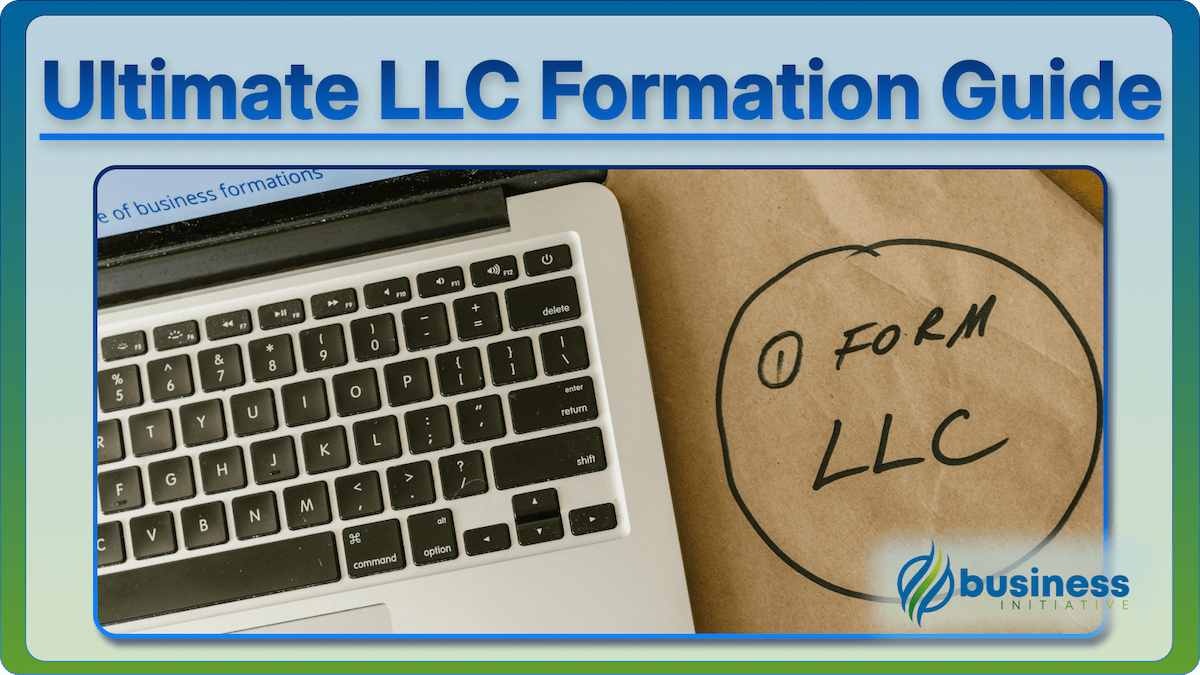One mistake. That’s all it takes.
You miss an annual report deadline. You use the wrong address. You forget to update your registered agent.
Suddenly, you’re facing fines. Penalties. Legal fees. Your business loses good standing. Your personal assets might be at risk.
This doesn’t have to happen.
Below are the 21 most expensive formation mistakes founders make. Ranked by cost and frequency. With clear prevention steps for each one.
Read this. Avoid these mistakes. Save yourself thousands.

 Key Takeaways
Key Takeaways
- Missing annual report deadlines is the most common compliance mistake and can result in loss of good standing and expensive reinstatement fees
- Using incorrect registered agent information or failing to update it when you move can lead to missed legal documents and default judgments
- Filing formation documents with errors requires expensive amendments and can delay your business launch by weeks
- Operating without proper business structure exposes personal assets to business liabilities—formation protects you
- Most expensive mistakes are preventable with proper planning, calendar reminders, and professional assistance when needed
 Table of Contents
Table of Contents
Why Mistakes Cost So Much
Formation mistakes don’t just cost money. They cost time. Opportunities. Peace of mind.
The financial cost:
- State penalties and late fees
- Reinstatement fees to restore good standing
- Legal fees to fix errors
- Amendment filing fees
- Lost business opportunities while fixing problems
The hidden cost:
- Time spent dealing with compliance issues instead of growing your business
- Stress and anxiety from legal problems
- Damage to your business reputation
- Risk to personal assets if liability protection is compromised
The good news: Every mistake on this list is preventable. Read on to learn how.

Mistakes #1-7: The Costliest Errors
These mistakes cost the most money and cause the most damage. Avoid them at all costs.

Mistake #1: Missing Annual Report Deadlines
What happens: Your state requires annual reports to maintain good standing. Miss the deadline and your business loses good standing. You face late fees, penalties, and expensive reinstatement processes.
The cost: Late fees, penalties, reinstatement fees, and potential administrative dissolution.
How to prevent it:
- Mark your annual report deadline on your calendar immediately after formation
- Set reminders 30 days, 14 days, and 7 days before the deadline
- Use your state’s business directory to find filing requirements. See our state-by-state checklist for links
- Consider professional registered agent service that tracks deadlines for you
Pro tip: Annual report deadlines vary by state. Some are based on your formation anniversary. Others are fixed dates. Check your state’s requirements using the Secretary of State directory.
Mistake #2: Using Incorrect Registered Agent Information
What happens: Your registered agent address is wrong or outdated. Legal documents get returned. You miss lawsuits, tax notices, and compliance deadlines. Default judgments are entered against you.
The cost: Default judgments, missed legal deadlines, loss of liability protection, legal fees to fix problems.
How to prevent it:
- Verify your registered agent address is correct before filing
- Update your registered agent information immediately if you move or change agents
- Use a professional registered agent service for reliability. See our registered agent guide for details
- Never use a P.O. box—states require physical addresses
Pro tip: If you’re your own registered agent and you move, you must update your address with the state immediately. Failure to do so can result in administrative dissolution.
Mistake #3: Filing Formation Documents with Errors
What happens: You submit Articles of Organization or Incorporation with mistakes. The state rejects your filing or accepts it with errors. You need expensive amendments to fix it.
The cost: Amendment filing fees, delayed business launch, potential rejection and refiling fees.
How to prevent it:
- Review your form carefully before submitting
- Use our plain-English form guide to understand every field
- Double-check business name spelling and entity designator (LLC, Corp., etc.)
- Verify all addresses are complete and correct
- Have someone else review your form before filing
Pro tip: Most states charge fees for amendments. It’s cheaper to file correctly the first time than to fix mistakes later.
Mistake #4: Operating Without Proper Business Structure
What happens: You start doing business before forming your LLC or Corporation. You’re operating as a sole proprietorship. Your personal assets are exposed to business liabilities.
The cost: Personal asset exposure, loss of liability protection, potential personal bankruptcy.
How to prevent it:
- Form your business entity before accepting clients or signing contracts
- Don’t start operations until your formation is approved
- Understand the risks of operating without liability protection. See our LLC formation guide for details
Pro tip: Some founders think they can “backdate” their business start. This doesn’t work. Your liability protection starts when your entity is officially formed.
Mistake #5: Using a Business Name That’s Already Taken
What happens: You file with a name that’s already registered. Your filing is rejected. You lose your filing fee. You have to start over with a new name.
The cost: Lost filing fees, delayed launch, potential trademark issues if you’ve already started using the name.
How to prevent it:
- Always check name availability before filing
- Use your state’s business search tool to verify availability
- Check for similar names that could cause confusion
- Consider trademark searches if you plan to build a brand
Pro tip: Name availability checks are usually free. Spending 10 minutes checking can save you hundreds in rejected filing fees.
Mistake #6: Failing to Maintain Proper Business Records
What happens: You don’t keep proper corporate records. Operating agreements, meeting minutes, member lists. When you need them (for loans, investors, or legal issues), they don’t exist.
The cost: Loss of liability protection (piercing the corporate veil), difficulty securing financing, legal complications.
How to prevent it:
- Create an operating agreement (LLC) or bylaws (Corporation) from day one
- Keep meeting minutes if required by your entity type
- Maintain a member/shareholder register
- Store all business documents in an organized system
Pro tip: Proper record-keeping protects your liability shield. Courts can “pierce the corporate veil” if you don’t maintain proper corporate formalities.
Mistake #7: Ignoring Franchise Tax Obligations
What happens: Your state requires franchise taxes. You don’t pay them. Your business loses good standing. You face penalties and interest.
The cost: Franchise tax payments, late fees, penalties, interest, loss of good standing.
How to prevent it:
- Understand your state’s franchise tax requirements
- Mark franchise tax deadlines on your calendar
- Set up payment reminders
- Budget for franchise taxes in your business planning
Pro tip: Franchise tax requirements vary significantly by state. Some states don’t have franchise taxes. Others have complex calculations. Check your state’s requirements using your state directory.
Mistakes #8-14: Common Formation Errors
These mistakes happen during the formation process. They’re expensive to fix but easy to prevent.
Mistake #8: Using a P.O. Box for Required Physical Addresses
What happens: You use a P.O. box where a physical address is required. Your filing is rejected or your registered agent is invalid.
The cost: Rejected filing fees, delayed formation, potential compliance issues.
How to prevent it:
- Never use P.O. boxes for registered agent addresses
- Use a physical street address for all required fields
- If you want privacy, use a professional registered agent service
Pro tip: States require physical addresses so process servers can deliver legal documents. P.O. boxes don’t meet this requirement.
Mistake #9: Forgetting to Get an EIN
What happens: You form your business but don’t get an Employer Identification Number. You can’t open a business bank account. You can’t hire employees. You can’t file business taxes properly.
The cost: Delayed business operations, inability to open bank accounts, tax filing complications.
How to prevent it:
- Get your EIN immediately after formation
- Apply online at IRS.gov (it’s free and takes minutes)
- Keep your EIN confirmation letter in your business records
Pro tip: You can get your EIN the same day you form your business. Don’t wait.
Mistake #10: Not Creating an Operating Agreement or Bylaws
What happens: You form your LLC or Corporation but don’t create governing documents. When disputes arise or you need to prove corporate formalities, you have nothing.
The cost: Loss of liability protection, member/shareholder disputes, difficulty securing financing.
How to prevent it:
- Create an operating agreement (LLC) or bylaws (Corporation) immediately after formation
- Even single-member LLCs should have operating agreements
- Keep these documents updated as your business grows
Pro tip: Operating agreements and bylaws protect your liability shield. They’re also required by many banks and investors.
Mistake #11: Mixing Personal and Business Finances
What happens: You use your personal bank account for business transactions. You pay personal expenses from business accounts. You lose liability protection.
The cost: Loss of liability protection, tax complications, legal issues.
How to prevent it:
- Open a separate business bank account immediately after formation
- Never mix personal and business finances
- Use business accounts only for business transactions
- Keep detailed records of all business expenses
Pro tip: Mixing finances is one of the fastest ways to lose your liability protection. Courts call this “piercing the corporate veil.”
Mistake #12: Filing in the Wrong State
What happens: You form your business in a state where you don’t actually operate. You still need to foreign-qualify in your actual state. You’re paying fees in two states unnecessarily.
The cost: Double filing fees, ongoing compliance in multiple states, unnecessary complexity.
How to prevent it:
- Form your business in the state where you actually operate
- Only form in another state (like Delaware) if you have a specific strategic reason
- Understand foreign qualification requirements if you expand
Pro tip: For most small businesses, forming in your home state is the simplest and most cost-effective choice.
Mistake #13: Incorrect Entity Type Selection
What happens: You choose the wrong entity type for your situation. You face unnecessary taxes. You can’t achieve your business goals. You need to convert later (expensive).
The cost: Unnecessary taxes, conversion fees, missed opportunities.
How to prevent it:
- Research entity types before forming
- Understand tax implications of each structure
- Consider your long-term business goals
- Consult with a tax professional if unsure
Pro tip: Most solo founders are best served by an LLC. Corporations make sense if you plan to raise capital or go public. See our LLC vs Corporation comparison for guidance.
Mistake #14: Not Updating Business Information When It Changes
What happens: You move, change your business name, or add members. You don’t update your state filings. Your information is outdated. You miss important documents.
The cost: Missed legal documents, compliance issues, potential loss of good standing.
How to prevent it:
- Update your state filings immediately when information changes
- Notify your registered agent of address changes
- File amendments for name changes or structural changes
- Keep your state records current
Pro tip: Most states require you to update information within a specific timeframe (often 30-90 days). Check your state’s requirements.
Mistakes #15-21: Ongoing Compliance Pitfalls
These mistakes happen after formation. They’re ongoing compliance issues that can compound over time.
Mistake #15: Not Maintaining a Registered Agent
What happens: Your registered agent moves, closes, or stops serving you. You don’t update the information. Legal documents get lost. You miss critical deadlines.
The cost: Missed legal documents, default judgments, loss of good standing.
How to prevent it:
- Keep your registered agent information current
- Update immediately if your agent changes
- Use a professional service for reliability. See our registered agent service for details
- Never let your registered agent service lapse
Pro tip: Professional registered agent services provide continuity. You don’t have to worry about them moving or closing.
Mistake #16: Ignoring State-Specific Compliance Requirements
What happens: Your state has unique requirements (publication, special licenses, etc.). You don’t comply. You face penalties and potential dissolution.
The cost: Penalties, compliance issues, potential loss of good standing.
How to prevent it:
- Research your state’s specific requirements before forming
- Check your state’s business directory for compliance information
- Set reminders for state-specific deadlines
- Stay informed about regulatory changes
Pro tip: Some states have unique requirements. New York requires LLC publication. California has specific annual report requirements. Check your state’s Secretary of State website for details.
Mistake #17: Not Separating Business and Personal Assets
What happens: You use personal assets for business without proper documentation. You lose liability protection. Personal assets are at risk.
The cost: Loss of liability protection, personal asset exposure, legal complications.
How to prevent it:
- Keep business and personal assets completely separate
- Document any loans or contributions between personal and business accounts
- Use business accounts for all business transactions
- Maintain proper corporate records
Pro tip: If you loan money to your business, document it properly. If you use personal assets for business, transfer them formally.
Mistake #18: Failing to File Required Business Licenses
What happens: Your business requires specific licenses or permits. You don’t obtain them. You operate illegally. You face fines and potential shutdown.
The cost: Fines, penalties, inability to operate legally, potential business closure.
How to prevent it:
- Research license requirements for your industry and location
- Obtain all required licenses before starting operations
- Keep licenses current and renew on time
- Display licenses where required
Pro tip: License requirements vary by industry, location, and business type. Check with your local business licensing office and state agencies.
Mistake #19: Not Keeping Tax Records Properly
What happens: You don’t keep proper tax records. You can’t file taxes correctly. You face IRS penalties and audits.
The cost: Tax penalties, interest, audit complications, potential legal issues.
How to prevent it:
- Keep detailed records of all income and expenses
- Separate business and personal expenses clearly
- Use accounting software or hire a bookkeeper
- Keep records for the required retention period (usually 7 years)
Pro tip: Good record-keeping makes tax time easier and protects you in audits. Start from day one.
Mistake #20: Operating in Multiple States Without Foreign Qualification
What happens: You expand to new states but don’t foreign-qualify. You’re operating illegally. You face penalties and potential lawsuits.
The cost: Penalties, fines, inability to enforce contracts, potential lawsuits.
How to prevent it:
- Understand when foreign qualification is required
- File foreign qualification before operating in new states
- Maintain compliance in all states where you operate
- Use professional services for multi-state compliance
Pro tip: Foreign qualification is required when you have a physical presence, employees, or significant business activity in another state. See our state-by-state resources for guidance.
Mistake #21: Not Having a Compliance System
What happens: You don’t have a system to track deadlines and requirements. You miss filings. You forget renewals. Mistakes compound.
The cost: Multiple compliance failures, cumulative penalties, loss of good standing.
How to prevent it:
- Create a compliance calendar with all deadlines
- Set reminders for important dates
- Use professional services to track compliance
- Review your compliance status quarterly
Pro tip: The best prevention is a system. Whether it’s a calendar, software, or professional service, have something that tracks your compliance requirements automatically.
Your Prevention System
Don’t wait for mistakes to happen. Build a prevention system now.
Step 1: Create a Compliance Calendar
List every deadline:
- Annual report due dates
- Franchise tax deadlines
- License renewal dates
- Any state-specific requirements
Set reminders 30 days, 14 days, and 7 days before each deadline.
Step 2: Organize Your Business Documents
Create a system for:
- Formation documents
- Operating agreement or bylaws
- Tax records
- License copies
- Compliance filings
Keep everything in one place. Digital is best for easy access.
Step 3: Set Up Automatic Reminders
Use calendar apps, task management tools, or professional services to track deadlines automatically.
Step 4: Review Compliance Quarterly
Every quarter, review:
- Upcoming deadlines
- Required filings
- License renewals
- Registered agent status
- Business information accuracy
Step 5: Get Professional Help When Needed
Some things are worth outsourcing:
- Registered agent service for reliability
- Compliance tracking for peace of mind
- Professional formation assistance for complex situations
Pro tip: Professional registered agent service tracks compliance deadlines automatically. See our registered agent guide for details.
If You’ve Already Made a Mistake
Made a mistake? Don’t panic. Here’s how to fix it:
Step 1: Assess the Damage
Determine:
- What mistake you made
- What penalties or fees you owe
- What filings you need to correct
- Your current compliance status
Step 2: Contact Your State
Reach out to your state’s Secretary of State office. Explain the situation. Ask about:
- Reinstatement procedures
- Required fees
- Necessary filings
- Timeline for resolution
Use the Secretary of State directory to find contact information.
Step 3: File Required Corrections
Submit any required:
- Amendments to correct errors
- Reinstatement filings to restore good standing
- Late annual reports or franchise tax payments
- Updated information filings
Step 4: Pay Required Fees
Pay all:
- Late fees
- Penalties
- Reinstatement fees
- Filing fees
Step 5: Prevent Future Mistakes
Once you’ve fixed the problem, implement a prevention system so it doesn’t happen again.
Pro tip: Most states have reinstatement procedures. The sooner you fix the problem, the less expensive it usually is.
Your Next Steps
Stop making expensive mistakes. Start preventing them.
This Week:
- Review this list and identify any mistakes you’re at risk of making
- Create a compliance calendar with all your deadlines
- Verify your registered agent information is correct
- Check your business information is current with the state
This Month:
- Set up automatic reminders for all compliance deadlines
- Organize your business documents
- Review your compliance status
- Fix any existing issues
Going Forward:
- Review compliance quarterly
- Update information immediately when it changes
- Use professional services for critical compliance tasks
- Stay informed about regulatory changes
Need help staying compliant? Get professional registered agent service that tracks deadlines and ensures you never miss a filing.
Want to understand formation requirements better? Check out our complete LLC formation guide and our state-by-state checklist.
Stay informed about business strategies and tools by following us on X (Twitter) and signing up for The Initiative Newsletter.
FAQs - Frequently Asked Questions About Formation Mistakes

What are the most expensive business formation mistakes?
The costliest include missing annual report deadlines, wrong or outdated registered agent info, filing errors that require amendments, and operating without a proper entity—leading to fines, reinstatement fees, and personal liability.
Learn More...
Missing deadlines can cause loss of good standing and expensive reinstatement.
Registered agent mistakes can mean missed lawsuits and default judgments.
Prevention with calendars, checklists, and professional help usually costs less than fixing mistakes later.
What happens if I miss my annual report deadline?
You can lose good standing, face late fees and penalties, and may need to file reinstatement (which can be costly). In some states, the state can administratively dissolve or revoke your entity.
Learn More...
Set calendar reminders before the due date; many states allow online filing.
Use a state-by-state checklist or compliance dashboard to track all report dates.
If you already missed, file as soon as possible and pay any fees to get back in good standing.
Why does my registered agent information matter so much?
The state and courts send legal and official mail to your registered agent. Wrong or outdated info means you can miss lawsuits, state notices, and deadlines—leading to default judgments or loss of good standing.
Learn More...
Update your agent with the state whenever you change address or agent.
Choose a reliable agent (professional service or someone who is always available at the listed address).
Check our registered agent and Secretary of State resources to stay compliant.
Can I fix formation document errors after filing?
Yes, but you usually must file amendments or correctives with the state, which can cost fees and take time. Serious errors can delay launch or require legal help. Review everything before submitting.
Learn More...
Common errors include wrong name, address, or member/manager info; follow the state's amendment process.
Prevention—using checklists and double-checking against state instructions—is cheaper than fixing later.
For complex entities, consider professional formation help to avoid mistakes.
How do I avoid making these formation mistakes?
Use a state-by-state checklist, set reminders for annual reports and taxes, keep registered agent info current, and review formation documents before filing. Get professional help for complex situations.
Learn More...
Track all deadlines in one place (e.g., compliance dashboard or calendar).
When you move or change contact info, update the state and your registered agent right away.
Refer to an ultimate formation guide and official state resources so you know what your state requires.
Sources & Additional Information
This guide is based on common compliance mistakes observed across all 50 states. Specific penalties and requirements vary by state. Always check your state's official requirements.
For state-specific resources, see our State-by-State Formation Checklist.
For Secretary of State contact information, see our Secretary of State Directory.
For information about registered agent requirements and compliance tracking, see our Registered Agent Service page.
For detailed formation guidance, see our Ultimate Guide to Forming an LLC.


